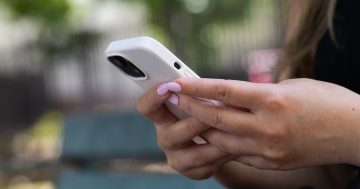Rebecca Knight* says microaggressions are the everyday indignities and insults that members of marginalised groups endure, she tackles how to identify and correct these subtle acts of exclusion.
 It was a throwaway comment, and you were unaware that it was demeaning.
It was a throwaway comment, and you were unaware that it was demeaning.
But now that a colleague has brought the slight to your attention, you realise what you said was offensive.
As a person who wants to be a good ally to your colleagues of colour and members of underrepresented groups, how do you apologise after you’ve committed a microaggression?
How and when should you try to make amends? And what’s the best way to ensure that you do better in the future?
What the Experts Say
Microaggressions are the everyday indignities and insults that members of marginalised groups endure in their routine interactions with people in all walks of life.
In the workplace, these “subtle acts of exclusion” come in many forms, says Tiffany Jana, founder and CEO of TMI Consulting and the co-author of Overcoming Bias: Building Authentic Relationships Across Differences.
They include backhanded compliments (a white manager telling an African American employee that, “She’s very articulate”; a group of co-workers jokingly ribbing a Latino executive that, “He’s a diversity hire”) and stereotypical assumptions (a male colleague asking his female peer to take notes and order lunch for the team).
These remarks and behaviours “happen casually and often without any harm intended,” says Jana, but they offer a clear demonstration “that the initiator harbours unconscious bias.”
Meanwhile, the person on the receiving end who belongs to a group that’s discriminated against — be it because of their race, gender, sexual orientation, disability, or religion — is often left to suffer in silence.
This is starting to change, however.
Amidst a national conversation on race and equality, “we are increasingly holding people accountable,” says Jana.
The change has critical implications for managers who “care about creating an inclusive team and workplace,” says Lily Zheng, a diversity consultant and the co-author of Gender Ambiguity in the Workplace: Transgender and Gender-Diverse Discrimination.
If you’ve been called out for committing a microaggression you need to respond with compassion, concern, and humility.
“You want people to feel respected, so you need to walk the talk,” Zheng says. “It’s important to get this right.” Here are some tips.
Take a breath
Being called out for a microaggression does not feel good.
You may experience a range of emotions — “stress, embarrassment, defensiveness, and your heart rate may even go up,” says Zheng.
This is normal. But do not let these sensations rule how you react.
Instead, “take a breath.” Calm yourself.
Understand that while you may have made a mistake, it doesn’t mean you’re a bad person.
In these circumstances, people often fall prey to the fundamental attribution error — a “tendency to believe that things happen because of who we are as people rather than the situation,” says Zheng.
In other words, you can still be “a good person with positive intentions, who slipped up.”
And there’s an upside to being called out for a microaggression: It’s an indication of trust.
The person who labelled your comment believes that you can be better, says Jana.
“If they don’t think you’re capable of, or interested in, evolving they would not have wasted their breath.”
Don’t make it about you
While being called out for a microaggression may be awkward and uncomfortable, you don’t want to get defensive.
“You must not make it about you,” says Jana.
“When a human being tells you that they have been harmed by your words or actions, you need to focus on the injured party.”
It can be helpful to remember that “every callout has an entire history’s worth of unsaid context behind it,” says Zheng.
“When someone says, ‘What you said hurt me,’ they’re saying, ‘You have hurt me in the way that people have hurt me, and people like me, in the past.’”
In other words, your remark was not “just one interpersonal interaction.”
Rather it carried centuries’ worth of discrimination, cruelty, and oppression.
“And the weight of historical oppression is very heavy,” says Zheng.
Listen
Your first priority is to make sure the other person feels heard, says Jana.
As difficult as it may be to receive the criticism, “they are taking a risk by putting themselves on the line.”
Listen to what they say with an open heart and an open mind.
Sincerely apologise
Next, says Jana, you need to “replace your instinctive defensiveness with curiosity and empathy” and offer a genuine apology.
According to Zheng, your apology must include three elements: “You must address the harmful comment, acknowledge the impact it had, and commit to doing better.”
Start by saying something like, “Thank you for sharing that with me. It’s hard to hear. And I appreciate you trust me enough to share this feedback.”
Then say, “I am sorry that what I said and did was offensive.”
Your apology must be sincere. “Don’t say, ‘I am sorry if you felt offended.’ The insertion of the ‘if’ makes it seem like you’re humouring them,” says Zheng.
Finally, say, “I care a lot about creating an inclusive workplace, and I want to improve.”
Depending on your relationship with this colleague, you might also ask for a suggestion on how to be better in future situations.
And don’t overdo it
Upon being called out for an offensive remark, some people have a tendency to over-apologise, says Zheng.
“They go on and on, saying things like: ‘I am so sorry. I feel so terrible. I am not a racist. What must you think of me?’”
But these histrionics do not help, and in fact, they contribute to the insult.
It’s not your colleague’s job to assuage your guilt, and make you feel better about the situation.
This shouldn’t become “a pity party,” adds Jana.
How to respond when you’re called out publicly
All of the above steps become much harder if the conversation is happening in front of others.
According to Zheng, most callouts for microaggressions tend to be private interactions because of the sensitive subject matters.
That said, if your colleague draws attention to your behaviour in a public setting, it’s likely because “they don’t feel psychologically safe with you” or “they’re at the end of their rope,” Zheng says.
In situations like these, tread carefully.
“First, pause. Then say, ‘Thank you for sharing that feedback. I am not going to use that word in the future,’” Zheng advises.
Keep your response short and non-defensive.
Later, “message the person privately and go through the same steps of acknowledging the hurtful comment, recognising the impact it had, and committing to doing better,” she says.
You don’t want to do this part of process “publicly because it is performative.”
Keep working on it
Finally, recognise that becoming a better, open-minded, anti-racist, anti-sexist person is hard work.
The important thing is to “commit to opening your eyes and be willing to course correct at every opportunity” and to have “grace for yourself and grace for others,” says Jana.
Let your team know that this is a priority for you, adds Zheng.
Say, “In the future I am going to work on this, and if you can, please keep holding me accountable.”
Principles to Remember
Do
Make the other person feel heard and follow their lead in the conversation.
Offer a genuine apology that acknowledges the impact and harm your comment caused.
Keep striving to be better.
It requires grace, humility, and commitment.
Don’t
Fall prey to the fundamental attribution error.
You can still be a good, well-intentioned person who said something offensive.
Make the conversation about you.
Instead, express gratitude for your colleague’s trust and belief that you’re capable of evolving.
Overdo your apology by laying on your privileged guilt. Your apology should be sincere.
*Rebecca Knight is a freelance journalist in Boston and a lecturer at Wesleyan University.
This article first appeared at hbr.org











